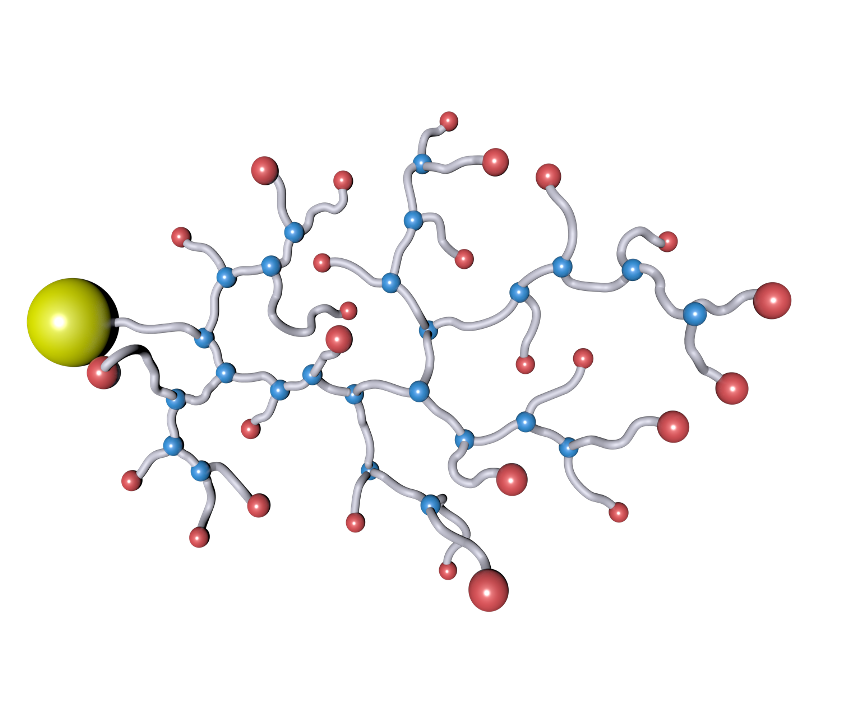Exploring the Varied Applications and Advantages of Polymers in Different Industries
Polymers, with their varied array of residential or commercial properties and performances, have actually become essential in numerous industries, each gaining special advantages from their application. From boosting security and efficiency in the vehicle sector to changing medical tools in the health care sector, polymers play an essential role.
Automotive Market Applications
Polymers play a pivotal role in improving the efficiency and longevity of various elements within the vehicle field. One prominent use of polymers in the automobile market is in the manufacturing of light-weight parts.

Healthcare Industry Benefits
In different health care applications, the advantages of utilizing polymers are widely recognized for their diverse series of beneficial properties. Polymers play a vital duty in the medical care sector as a result of their convenience, biocompatibility, and cost-effectiveness. Among the key benefits of polymers in health care is their capability to be tailored to particular requirements, such as flexibility, resilience, and biodegradability, making them perfect for a broad range of medical applications.
Polymer-based products are thoroughly utilized in medical devices, such as catheters, implants, prosthetics, and medicine distribution systems, because of their biocompatibility and capability to imitate natural cells. These materials can decrease the risk of sensitive reactions or rejections, enhancing person security and outcomes. In addition, polymers are light-weight, making them appropriate for wearable medical gadgets and guaranteeing patient convenience.
Additionally, polymers enable the advancement of cutting-edge treatment approaches, such as hydrogels for tissue design and nanocomposites for targeted drug shipment. Their convenience of processing and sanitation makes them important for keeping high standards of hygiene in medical care settings. Generally, the varied advantages of polymers add significantly to improvements in clinical technology and individual treatment.
Environmental Benefits of Polymers

Additionally, polymers can add to power financial savings due to their lightweight nature. In markets such as transportation, lightweight polymer products can aid reduce fuel consumption and greenhouse gas discharges. Furthermore, polymers can make it possible for the growth of energy-efficient products such as insulation products that improve power preservation in buildings.
Additionally, polymers play an essential function in lowering water pollution. The usage of polymer-based filtering systems can efficiently remove pollutants and contaminants from wastewater, guarding water sources and environments. Generally, the environmental benefits of polymers make them beneficial properties in advertising sustainability and green techniques across various industries.
Polymers in Electronic Devices and Innovation
Thinking about the increasing need for cutting-edge and sustainable services in modern industries, the assimilation of sophisticated polymer technologies in the world of electronics and technology has actually emerged as a pivotal strategy for driving effectiveness and performance. Polymers have actually transformed the electronic devices market by enabling the manufacturing of lighter, more click over here now adaptable, and resilient digital devices. From smart devices to medical tools, polymers play a vital role in boosting product style and functionality.
One considerable benefit of polymers in electronic devices is their shielding homes, which aid secure delicate electronic elements from ecological elements and electric disturbance. Additionally, polymers are crucial in the advancement of adaptable displays, wearable innovation, and published electronic devices, providing limitless opportunities for creating wise and interconnected tools.
Furthermore, the usage of polymers in digital product packaging has caused innovations in miniaturization and thermal administration, enhancing the total performance and dependability of digital systems. As technology remains to advance, the flexibility and versatility of polymers will definitely drive further advancement in the electronic devices industry, shaping the future of innovation.
Duty of Polymers in Building and Facilities
The assimilation of advanced polymer materials in construction and facilities jobs has actually revolutionized the way structures are developed and integrated in modern-day times. Polymers supply countless benefits in the building and construction market due to their flexibility, toughness, and cost-effectiveness. One vital duty of polymers in building and construction is their usage in layers and sealers, giving defense versus ecological aspects such as wetness, UV radiation, and rust. Furthermore, polymers are used in the manufacturing of lightweight and high-strength composite materials, boosting the architectural honesty of structures while minimizing total weight.
Additionally, polymers play a crucial duty in sustainable construction techniques by making it possible find more for the advancement of energy-efficient structures. Protecting materials made from polymers help manage indoor temperature levels, decreasing the need for home heating and cooling systems and ultimately reducing energy intake. Moreover, the use of polymer-based composites in go to these guys framework projects such as bridges and roadways enhances their longevity and reduces maintenance expenses. On the whole, the consolidation of polymers in building and construction and infrastructure displays their substantial influence on contemporary design practices.
Final Thought
To conclude, polymers play a critical role in various industries such as automobile, health care, ecological, electronic devices, and building and construction. Their versatile properties make them useful in producing ingenious services and products. From enhancing fuel efficiency in cars to enhancing medical devices, polymers offer numerous advantages. In addition, their influence on lowering waste and advertising sustainability highlights their value in contemporary applications. The extensive use polymers demonstrates their significant contribution to progressing innovation and enhancing high quality of life.